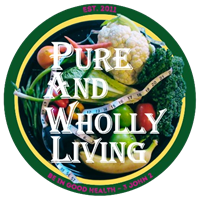The lazy, hazy days of summer are good for your heart — but not because we tend to be lazier or hazier. Quite the opposite. Seasonal changes bring changes to our lifestyles, and summer just happens to be the season where we live a bit healthier. Here are 5 reasons why summer is especially good for aging hearts.
The Vitamin D we get from the sun improves our cholesterol.
A study from Brazil found last year that our “bad” cholesterol levels, known as LDL, trend about 8 percent higher in the winter than the summer and our “good” cholesterol, called HDL, tends to increase by about 5 percent. Seasonal cholesterol changes vary in parts of the United States and Europe where there are more dramatic seasonal weather changes (read: Californians may be on to something here.)
Here’s why: When it’s cold out, we hibernate inside and get less sun. Plus daylight hours in the winter are shorter. The result is that we get less Vitamin D from the sun, something that is known to improve the ratio of HDL to LDL.
This may also explain why the coldest months are the witching hour for heart attacks. Cardiovascular deaths were as much as 36 percent higher in December and January, according to a study done at Good Samaritan Hospital in Los Angeles.
We eat more fresh produce.
For one thing, there is more of it in summer. For another, it’s stuff like blueberries. Blueberries are consistently ranked among the top fruits and vegetables tested for antioxidant activity. Come summer, they have the best flavor and are the least expensive.
A diet that’s rich in fruits and vegetables is generally lower in calories and higher in nutrients, and that translates into better care of your heart.
We reduce our stress.
Most of us take some time off from work over the summer. Granted, not as much as the French, but we do take some breaks. By law, every country in the European Union has at least four work weeks of paid vacation. Color us green. On average, workers with one year of service received 10 days of paid vacation in the United States in 2012.
And yet we have plenty of evidence that time off from work is good for us and good for our employers once we come back recharged. When we disconnect from our jobs, we tend to relax more. Our high blood pressure drops a few notches, we sleep better and basically give our hearts a break. Stress increases the pumping action and heart rate that in turn causes our arteries to constrict. This restricts blood flow to the heart.
A nine-year study that surveyed 12,000 men about their vacationing habits found that those who took at least one vacation a year were almost 30 percent less likely to die from a heart-related cause compared to other men of the same age who did not take time off.
There are no big pig-out holidays in the summer.
Sure you might double-down on the burgers on July 4th, but nothing like the damage you do on some of those other non-summer holidays such as Thanksgiving, Christmas, and Passover. There is no continual stream of holiday parties with tempting sweets. So basically, aware of it or not, we are giving our bodies a rest from the binge-eating of winter.
Consuming heavy meals that are rich in carbohydrates, sugar, or fat can bring on palpitations, says WebMD. Even those who set out to be mindful of their intake around the winter holidays can cave to the pressure of the ongoing onslaught of treats during this social season. Come summer, all you have to do is grab a slice of watermelon instead of the second burger.
We are more outside more doing physical activities.
Dare we say the “E” word? Yes, in summer we tend to exercise outside more, sometimes without even realizing it. We take a swim in the pool to cool off, take walks on the beach, throw a frisbee to the dog in the park, hike our favorite trails, and love being able to jump on our bikes for a ride across town. All of that counts as exercise, which gets our heart rates up and reduces stress.
Source: Huffington Post
